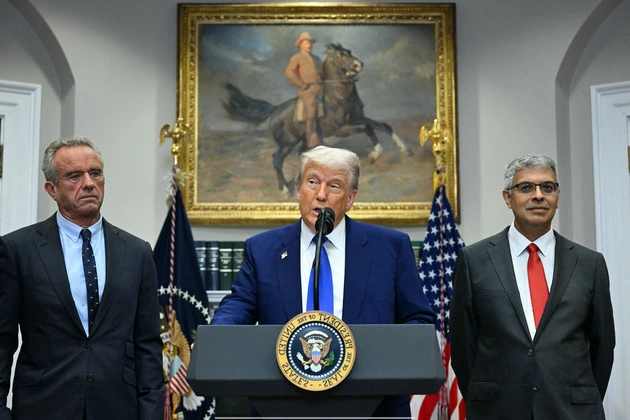
A federal judge appointed by Ronald Reagan on Monday accused the Trump administration of “appalling” and “palpably clear” discrimination against racial minorities and LGBTQ+ Americans.
Judge’s Bold Stand Against Discrimination
“I’ve never seen a record where racial discrimination was so palpable. I’ve sat on this bench now for 40 years. I’ve never seen government racial discrimination like this,” said U.S. District Judge William Young, a Massachusetts-based jurist who took the bench in 1985.
Young’s sweeping rebuke during a court hearing was a reference to two executive orders signed by President Donald Trump that led the National Institutes of Health to rescind funding for research related to racial minorities and LGBTQ+ people. Though Young said he was uncertain whether he had the power to block the executive orders themselves, he declared the NIH cuts Monday to be “illegal” and “void,” and he ordered the NIH to immediately restore the research funds. An appeal is likely.
“I am hesitant to draw this conclusion — but I have an unflinching obligation to draw it — that this represents racial discrimination and discrimination against America’s LGBTQ community,” the judge said. “That’s what this is. I would be blind not to call it out. My duty is to call it out.“
Legal Battles Over Discriminatory Policies
Young’s commentary was an extraordinary departure for a federal judge of any era even at a moment when Trump’s policies have been facing stiff resistance in the courts.
Trump swept into office in part on his promise to withdraw government support for programs he deems supportive of “diversity, equity and inclusion” initiatives as well as any he claims support “gender ideology extremism.” The orders led to a governmentwide crackdown on funding for programs and research related to minority communities — and has spawned a long list of lawsuits calling the abrupt cuts illegal.
Young isn’t the first Reagan-appointed judge to take issue with the Trump administration. Judge Royce Lamberth in Washington has blocked the Trump administration’s efforts to relocate transgender women to men’s prisons, and he has used his perch to defend the courts against criticisms from Trump and his allies. In similarly memorable remarks from the bench, Judge John Coughenour, based in Seattle, accused Trump of viewing the rule of law as an “impediment” to his priorities.
Trump allies have brushed off the judges’ critiques as relics of an earlier age of establishment-led government. And the White House blasted Young’s commentary as an indication of bias.
Pushback Against Discriminatory Actions
“It is appalling that a federal judge would use court proceedings to express his political views and preferences,” White House spokesman Kush Desai said in a statement. “How is a judge going to deliver an impartial decision when he explicitly stated his biased opinion that the Administration’s retraction of illegal DEI funding is racist and anti-LGBTQ?”
Judges have routinely and repeatedly found that the administration’s race to terminate contracts, dismantle agencies and deport immigrants has been tainted by illegality and violations of due process, but few have mounted such a broad-based rejection of the administration’s policies themselves.
“You are bearing down on people of color because of their color,” Young said. “The Constitution will not permit that. … Have we fallen so low? Have we no shame?”
Legal Battles Over Discriminatory Policies
The Justice Department has contended that its efforts to cut research grants — and many other programs and agencies — were simply a reflection of the new Trump administration’s policy priorities, reflected in Trump’s executive orders and unreviewable by the courts. They say the president should have broad latitude to set priorities and pause funding for programs that no longer align.
But Young said the administration made virtually no effort to push back on claims that the cuts were discriminatory. “We’re talking about health here, the health of Americans, of our LGBTQ community,” he said. “That’s appalling.”
Young’s comments came after he ordered the Trump administration to restore hundreds of scientific grants the National Institutes of Health terminated earlier this year. His order came as part of a lawsuit from more than a dozen state attorneys general and advocacy groups for public health researchers that alleged the grant terminations were haphazard and discriminatory.
The Department of Justice, which defended NIH, argued the terminations align with congressional mandates to “improve research.”
“Research programs based on gender identity are often unscientific, have little identifiable return on investment and do nothing to enhance the health of many Americans. Many such studies ignore rather than seriously examine biological realities. … It is an improvement to eliminate these,” DOJ lawyer Thomas Ports Jr. said during the hearing.
Young pressed the DOJ for an explanation: “Where’s the support for that? … I’m asking you [to] just explain to me ‘often used to support unlawful discrimination.’ I see no evidence of that.”











